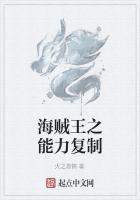'I'll give it you,' said Miss Ponsonby; 'were you not going away after having only kissed my hand?' 'Oh,' said the general, 'if that is my offence, I will soon make you reparation,' and instantly gave her a hearty smack on the lips, which ceremony he never forgot to repeat after dining with her on subsequent occasions."We got on the subject of bards, and I mentioned to him Gruffydd Hiraethog, the old poet buried in the chancel of Llangollen church.
The old clerk was not aware that he was buried there, and said that though he had heard of him he knew little or nothing about him.
"Where was he born?" said he.
"In Denbighshire," I replied, "near the mountain Hiraethog, from which circumstance he called himself in poetry Gruffydd Hiraethog.""When did he flourish?"
"About the middle of the sixteenth century.""What did he write?"
"A great many didactic pieces," said I in one of which is a famous couplet to this effect:
"He who satire loves to sing On himself will satire bring.""Did you ever hear of William Lleyn?" said the old gentleman.
"Yes," said I; "he was a pupil of Hiraethog, and wrote an elegy on his death, in which he alludes to Gruffydd's skill in an old Welsh metre, called the Cross Consonancy, in the following manner:
'"In Eden's grove from Adam's mouth Upsprang a muse of noble growth;So from thy grave, O poet wise, Cross Consonancy's boughs shall rise.'""Really," said the old clerk, "you seem to know something about Welsh poetry. But what is meant by a muse springing up from Adam's mouth in Eden?""Why, I suppose," said I, "that Adam invented poetry."I made inquiries of him about the eisteddfodau or sessions of bards, and expressed a wish to be present at one of them. He said that they were very interesting; that bards met at particular periods and recited poems on various subjects which had been given out beforehand, and that prizes were allotted to those whose compositions were deemed the best by the judges. He said that he had himself won the prize for the best englyn on a particular subject at an eisteddfod at which Sir Watkin Williams Wynn presided, and at which Heber, afterwards Bishop of Calcutta, was present, who appeared to understand Welsh well, and who took much interest in the proceedings of the meeting.
Our discourse turning on the latter Welsh poets I asked him if he had been acquainted with Jonathan Hughes, who the reader will remember was the person whose grandson I met and in whose arm-chair I sat at Ty yn y pistyll, shortly after my coming to Llangollen.
He said that he had been well acquainted with him, and had helped to carry him to the grave, adding, that he was something of a poet, but that he had always considered his forte lay in strong good sense rather than poetry. I mentioned Thomas Edwards, whose picture I had seen in Valle Crucis Abbey. He said that he knew him tolerably well, and that the last time he saw him was when he, Edwards, was about seventy years of age, when he sent him in a cart to the house of a great gentleman near the aqueduct where he was going to stay on a visit. That Tom was about five feet eight inches high, lusty, and very strongly built; that he had something the matter with his right eye; that he was very satirical and very clever; that his wife was a very clever woman and satirical; his two daughters both clever and satirical, and his servant-maid remarkably satirical and clever, and that it was impossible to live with Twm O'r Nant without learning to be clever and satirical; that he always appeared to be occupied with something, and that he had heard him say there was something in him that would never let him be idle; that he would walk fifteen miles to a place where he was to play an interlude, and that as soon as he got there he would begin playing it at once, however tired he might be. The old gentleman concluded by saying that he had never read the works of Twm O'r Nant, but he had heard that his best piece was the interlude called "Pleasure and Care."














